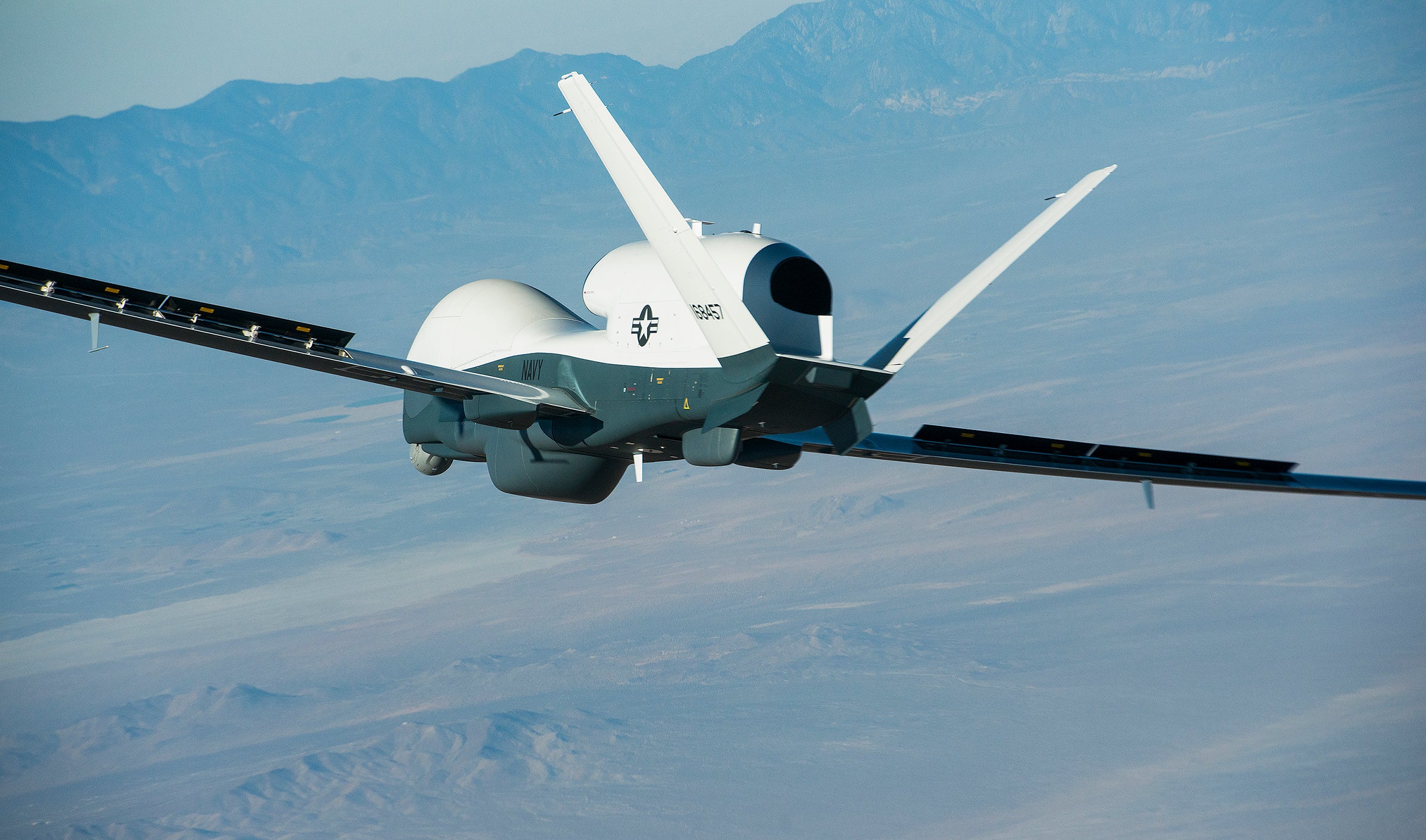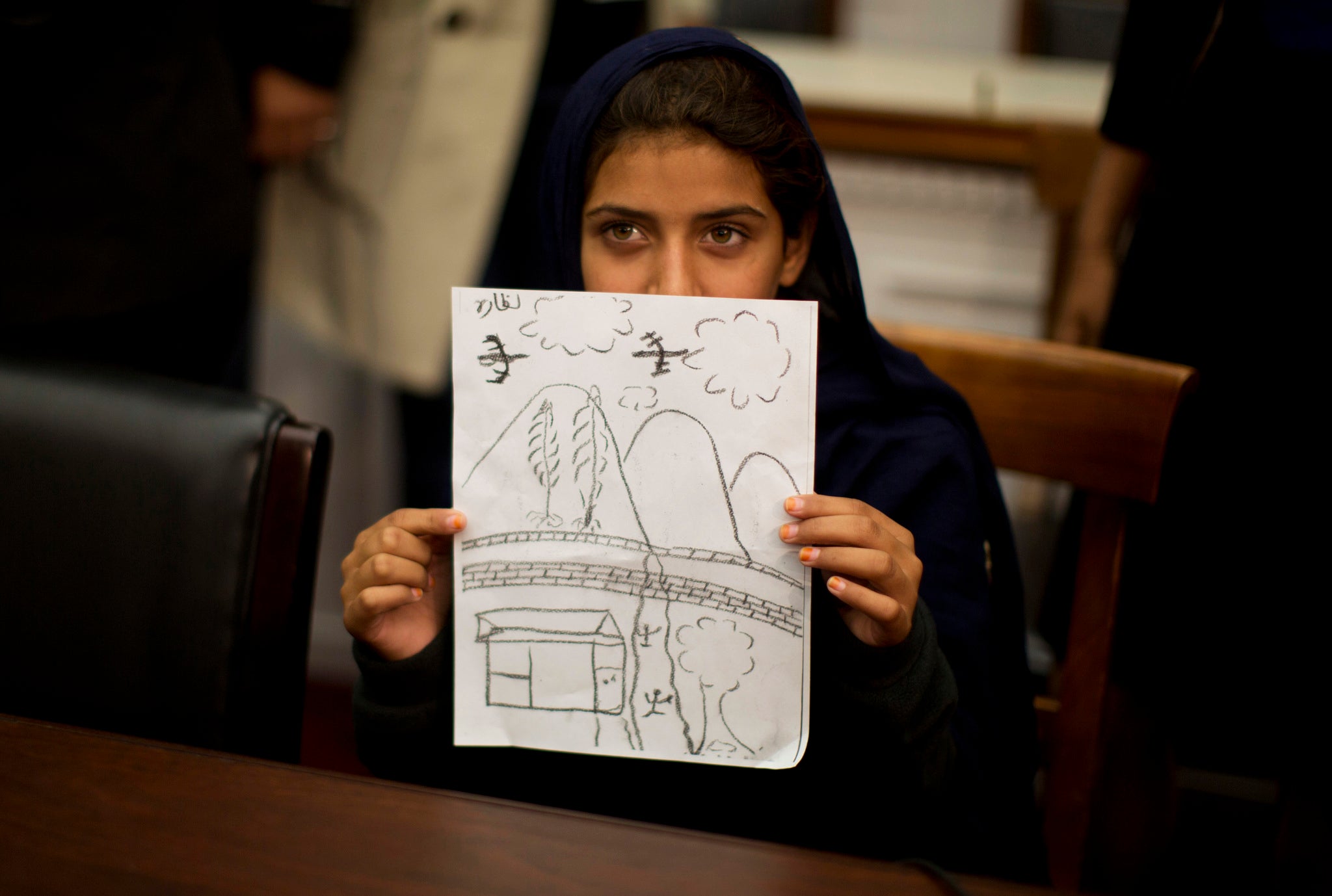American drone policy could create a state of 'perpetual war', warns top US military officials
Report claims 'seemingly low-cost' drone missions have encouraged the US to carry out more strikes and violate other countries' sovereign integrity

Your support helps us to tell the story
From reproductive rights to climate change to Big Tech, The Independent is on the ground when the story is developing. Whether it's investigating the financials of Elon Musk's pro-Trump PAC or producing our latest documentary, 'The A Word', which shines a light on the American women fighting for reproductive rights, we know how important it is to parse out the facts from the messaging.
At such a critical moment in US history, we need reporters on the ground. Your donation allows us to keep sending journalists to speak to both sides of the story.
The Independent is trusted by Americans across the entire political spectrum. And unlike many other quality news outlets, we choose not to lock Americans out of our reporting and analysis with paywalls. We believe quality journalism should be available to everyone, paid for by those who can afford it.
Your support makes all the difference.The American government’s campaign of targeted killings and drone strikes has put the country on a “slippery slope” toward perpetual war, according to a new study from a global security think-tank.
The bi-partisan report, authored by a panel including a retired US general and former Head of United State Central Command, said that increasingly sophisticated UAV technology has “fuelled a ‘whack-a-mole’ approach to counterterrorism” and fostered anti-American sentiment around the world.
The authors say that although drones should be “neither demonized nor glorified,” they are not a “US super-weapon” and have “substantial vulnerabilities as well strengths.” The report suggests that it is not so much the drones themselves that are the problem, but the policies drones have enabled.
The authors say that the “seemingly low-risk and low-cost missions” carried out by drones have encouraged the US to pursue a greater number of targets, creating an “escalation risk” by “[lowering] the bar to enter a conflict without increasing the likelihood of a satisfactory outcome.”
Essentially, the report is saying that drones have made it easier to wage war by eliminating the need to involve military personnel (and thus reducing the risk of political fall-out caused by dead soldiers) but in doing so have not been successful in creating wars that are any easier to 'win’.

The report also says that the US government has failed to seriously evaluate the effects of drone warfare, arguing that “there is no indication that a U.S. strategy to destroy Al Qaeda has curbed the rise of Sunni Islamic extremism, deterred the establishment of Shia Islamic extremist groups or advanced long-term U.S. security interest.”
In addition to this, the authors note that America’s drone policy is “likely to be imitated by other states” and that the indiscriminate use of drone missions that violate “the norms of sovereignty” could lead to the erosion of territorial boundaries.
The report cites US operations in countries like Pakistan or Yemen where government consent “appears somewhat ambiguous” and assessments of “appropriate action” are necessarily “subjective”. The authors suggest that in these cases American drone strikes may actually “encourage other states to follow suit with their own military platforms or even commercial entities”.
In what counts for ‘good news’ in such a report, the authors dispelled the widespread criticism that drones create a “PlayStation mentality about war”. They note that there is “nothing new about discomfort with innovations in long-distance weapons,” and that it is often unremarked that drone operators actually have a far more “up close and personal view of the damage they inflict”.
The report says there is evidence that UAV operators are actually more vulnerable to post-traumatic stress as their missions often require that they follow targets for weeks at a time before pulling the trigger; “seeing them go about the routines of daily life, before one day watching on-screen as they are obliterated.”

The authors also agreed with US government's assertion that drone technology minimizes civilian casualties, noting that "imaging technologies that enable operators [...] to see details as fine as individual faces" combined with stricter targetingrules have resulted in a 'sharp drop' in the death of non-combatants.
The report concludes by criticizing two successive presidents for conducting "what amounts to a covert, multi-year killing program," and calling on the US exeuctive branch to establish an independent commissions to look for illegal or mistaken strikes.
"We do not believe it is consistent with American values for the United States to carry on a broad, multi-year program of targeted strikes in which the United States has acknowledged only the deaths of four US citizens, despite clear evidence that several thousand others have also been killed," said the authors.
"Without additional information, the citizenry cannot evaluate US targeted strikes."
Join our commenting forum
Join thought-provoking conversations, follow other Independent readers and see their replies
Comments